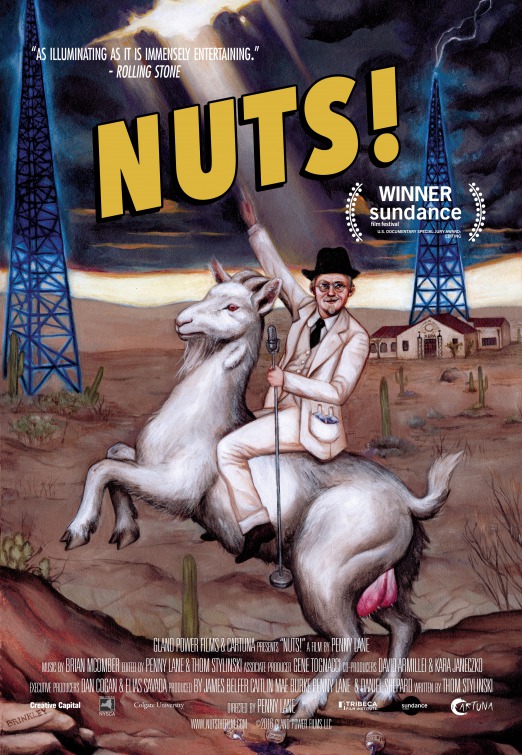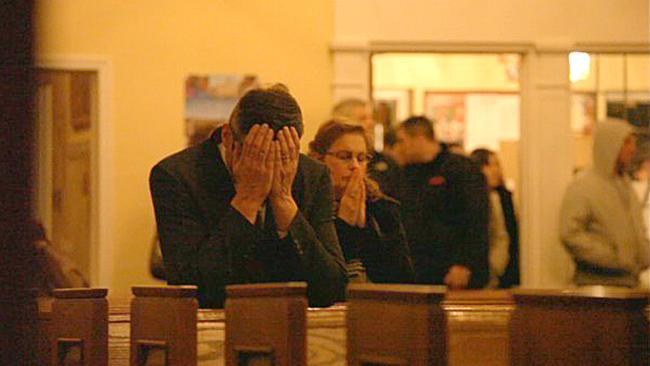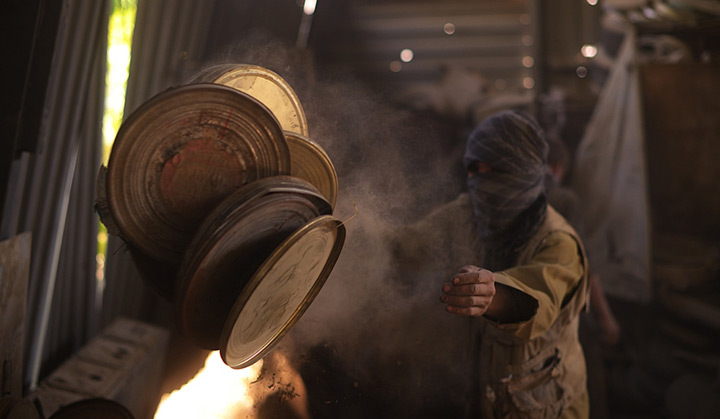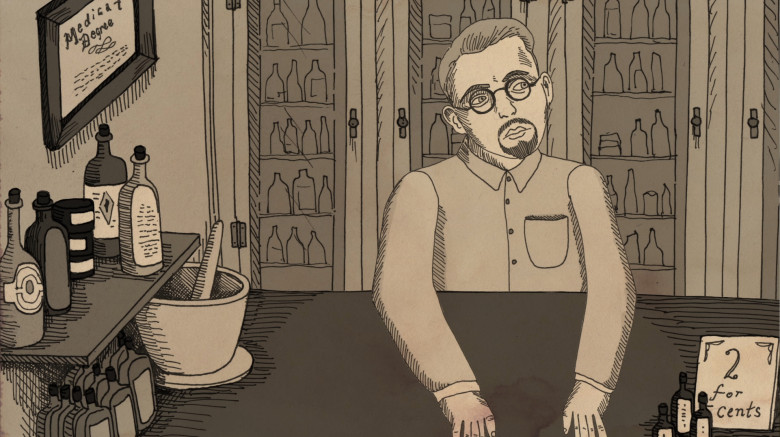Glenn here. Each Tuesday we bring you reviews and features on documentaries from theatres, festivals, and on demand. This week we are looking at three films from the Melbourne International Film Festival.
 Nuts!
Nuts!
We will be looking at Keith Maitland’s Tower in the coming weeks, but the current boom of animated documentaries – we also saw Oscar nominated doc short Last Day of Freedom – reaches its most absurd and gleefully entertaining point with Nuts! A ridiculous story that finds a storytelling home in director Penny Lane’s fabulous criss-cross of animation, archival footage, and talking heads.
Like her last film, Our Nixon of which I had some issues, Nuts! highlights Lane’s canny ability to fish fascinating stories out of the archives and is her latest is a significant step forward creatively. Here, she is wise to use the animation technique to recreate the strange life story of Dr. John Romulus Brinkley and use it as a leaping off point for some wonderfully inventive renderings of the myths and the true stories about this very weird man who built an empire in the 1920s by conning a swath of men across America that surgically grafting goat’s testicles inside an impotent or infertile man’s scrotum would somehow improve their sexual prowess and to use his ahead-of-his-time knowledge of radio to expand his brand.
More on Nuts!, Oscar possibility Newtown, and A Flickering Truth after the jump...
Nuts! is a marvel of storytelling – both in the old fashioned sense of a good yarn, and in the sense that editing and scripting leave the viewer genuinely unaware of where this spectacular story is going. The animation is a delight, drawn in era-appropriate browns and other dusty hues, while the voice work is full of colourful characters and inflections, a pleasing reminder that vocal actors are there for a reason. It will be a shame to see the likes of Gene Tognacci, who narrates the film by reading passages of the doctor’s own autobiography, ignored by the Annie Awards later in the year for somebody from, oh I don’t know, Storks. It’s a wonderful entertainment.
Release: Currently touring the country
Oscar Chances: Can a documentary ever compete for the animated category? Because I doubt the doc branch are going to extend a hand to something that could easily be dismissed as frivolous. And they didn't even nominate Waltz with Bashir.
Newtown
There’s a palpable atmosphere upon sitting down to watch Newtown. Whether it is with a crowd or at home, the viewer knows exactly the subject matter they are about to dive into. It’s almost impossible to comprehend a movie about the Sandy Hook Elementary tragedy that took 26 lives, including 20 aged six or seven, being anything but an arduous experience. A documentary that is more endurance than anything else.
It’s a compliment then to director Kim A. Snyder that Newtown is ultimately not that movie. Much like the dramatic Rabbit Hole, which also dealt with the story of people grappling with the death of a young child, there is a clearly defined hopefulness to Snyder’s film that makes Newtown far less of a chore than many would suspect. Politics are almost beside the point as Snyder embeds herself organically in the town and follows predominantly the families of three of the tragedy’s victims. The film is sad, yes, although not where you might expect. I found myself crying not so much at the details of the crime, which are left vague and unseen, but more at the smaller moments like one in which Mark Barden, father to Daniel, breaks down while in the middle of an otherwise routine conversation as if a switch was turned on in his brain. Or as Nicole Hockley, mother of Dylan, explains she likes travelling on behalf of her gun control initiatives because she can imagine her son is at home.

The killer’s name is never mentioned once, nor is his picture shown or his story elaborated. It’s a wise decision by Snyder to make her film more about the task of moving forward rather than the grim reminders of the past and make Newtown more vital than but a mere retelling of one of the worst days in recent history.
Release: An October release is planned with a PBS TV screening to come later. As noted by the director at the post-film Q&A, special screenings will be taking place across the country.
Oscar Chances: It's a contender, especially considering the topicality of gun violence. It's been 15 years since Bowling for Columbine, but this one is far more sober than that one.
A Flickering Truth
A growing niche among documentarians to look at national cinema through the lens of its destruction is yet again on display in Pietra Brettkelly’s A Flickering Truth. It is just the latest in a long line of docs to expose once-thriving national film industries from far-flung countries that were sadly torn apart by political war and political instability. In this case it is Afghanistan, the home of a once vibrant cinema industry that emerged in 1965, but was destroyed and lost with the rise of the Taliban. It follows in the footsteps of films about the industries of Cambodia (Golden Slumbers and The Missing Picture), Turkey (Remake, Remix, Rip-Off), Romania (Cinema Mon Amour), Congo (La Belle at the Movies) and more I’m sure I have missed.
A Flickering Truth is entertaining, well edited, and finds truly wonderful moments amid the dust and the rust as we follow the efforts of a team to find and restore reels and reels of classics, almost all of which lay unmarked in canisters in bombed out shelters and on shelves in poorly maintained facilities. Of all the incredible footage they discover, perhaps most striking of all is the documentary footage that shows terrible acts of terror during the rise of the Taliban that New Zealand filmmaker Brettkelly keenly juxtaposes with scenes of the Shah in a time of great Afghan prosperity.

I do begin to question how many times can one see the rich and textured history of a nation’s cinematic past torn apart by the worst of humanity. Nevertheless, A Flickering Truth offers a startling if subdued coarse in the history of film from a part of the world that is nowadays known for little more than terror and destruction. Amid all of that, Brettkelly’s film acts as a small beacon of hope.
Release: Unknown but it has a future home on VOD, I am sure.
